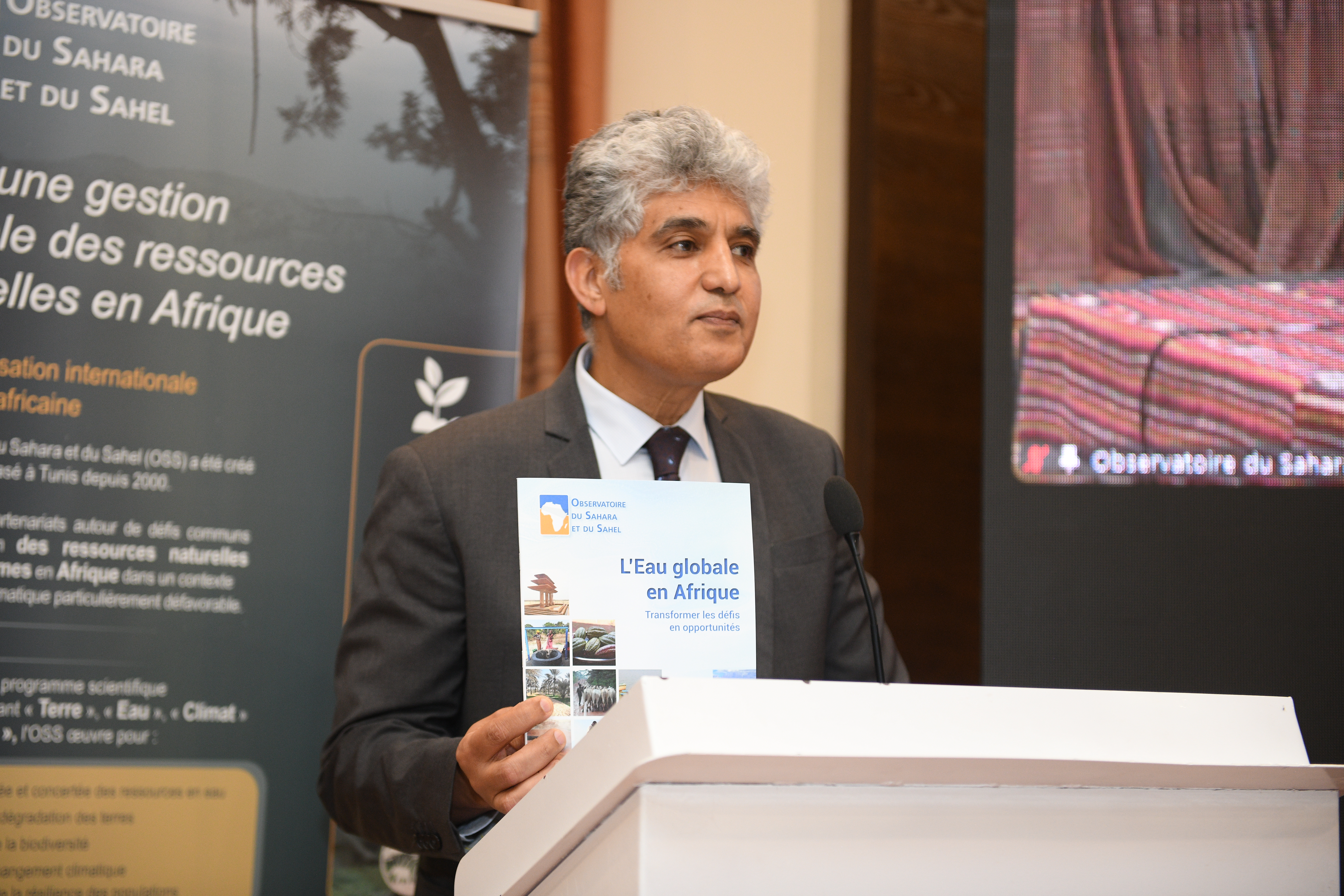
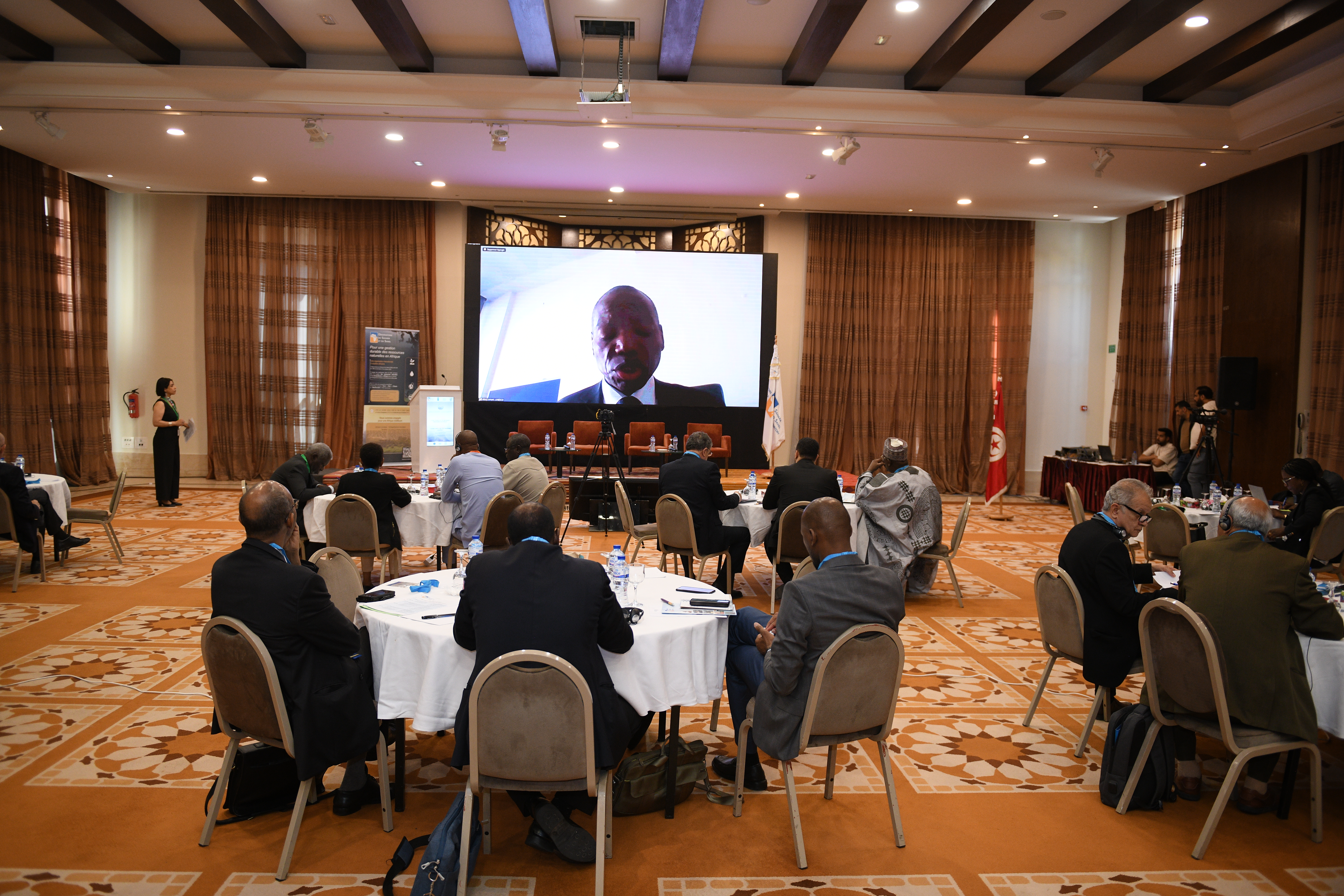
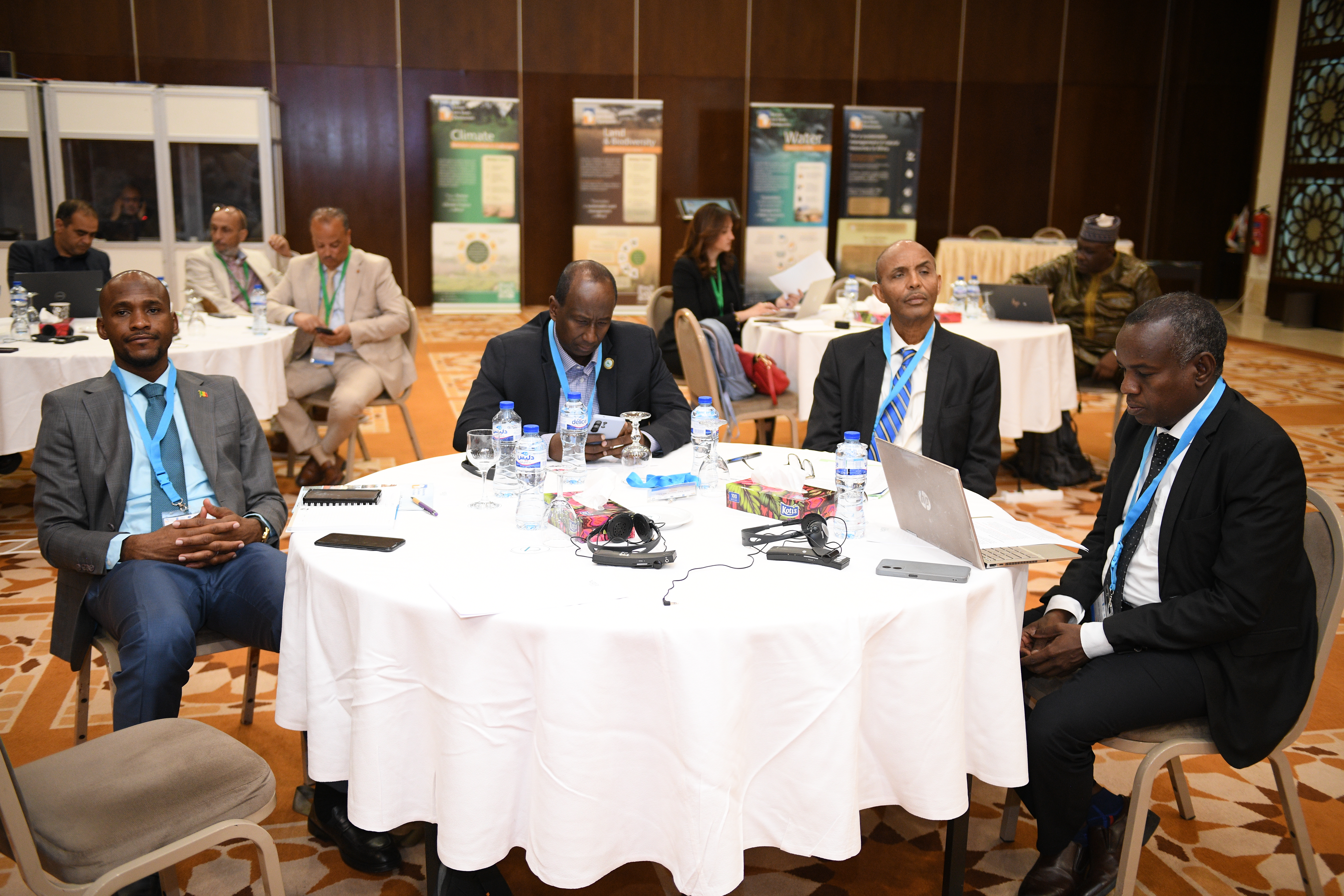
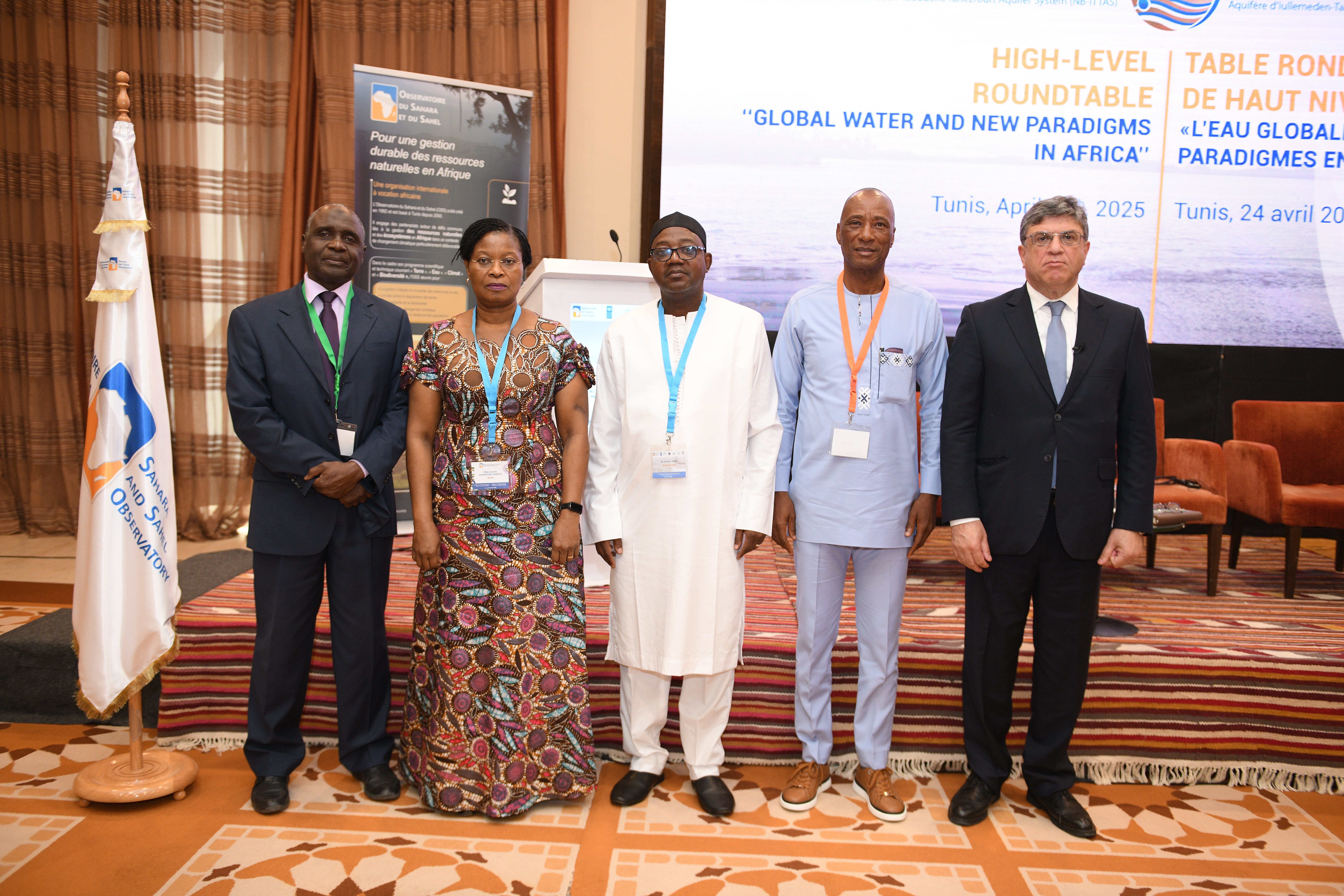
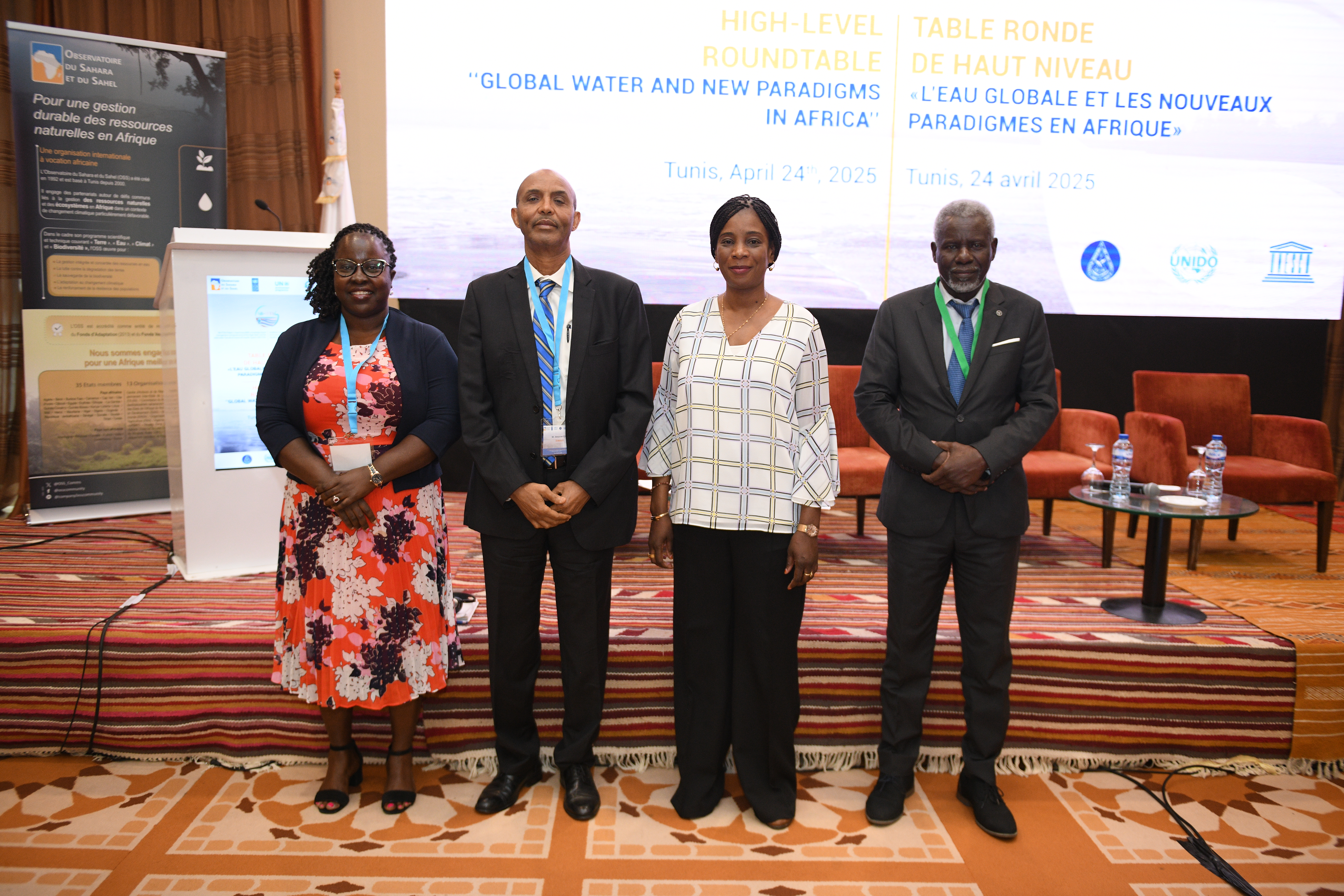
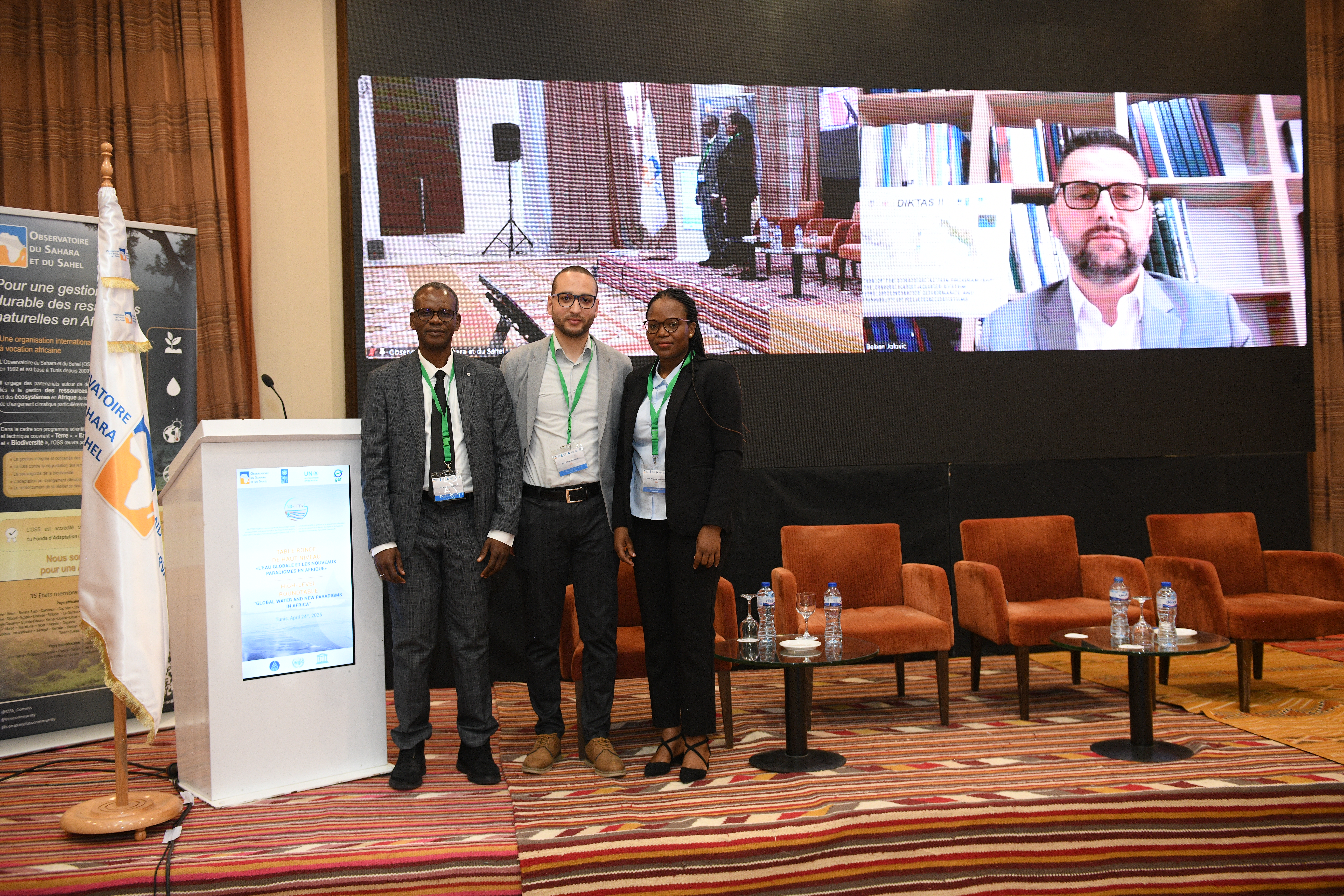
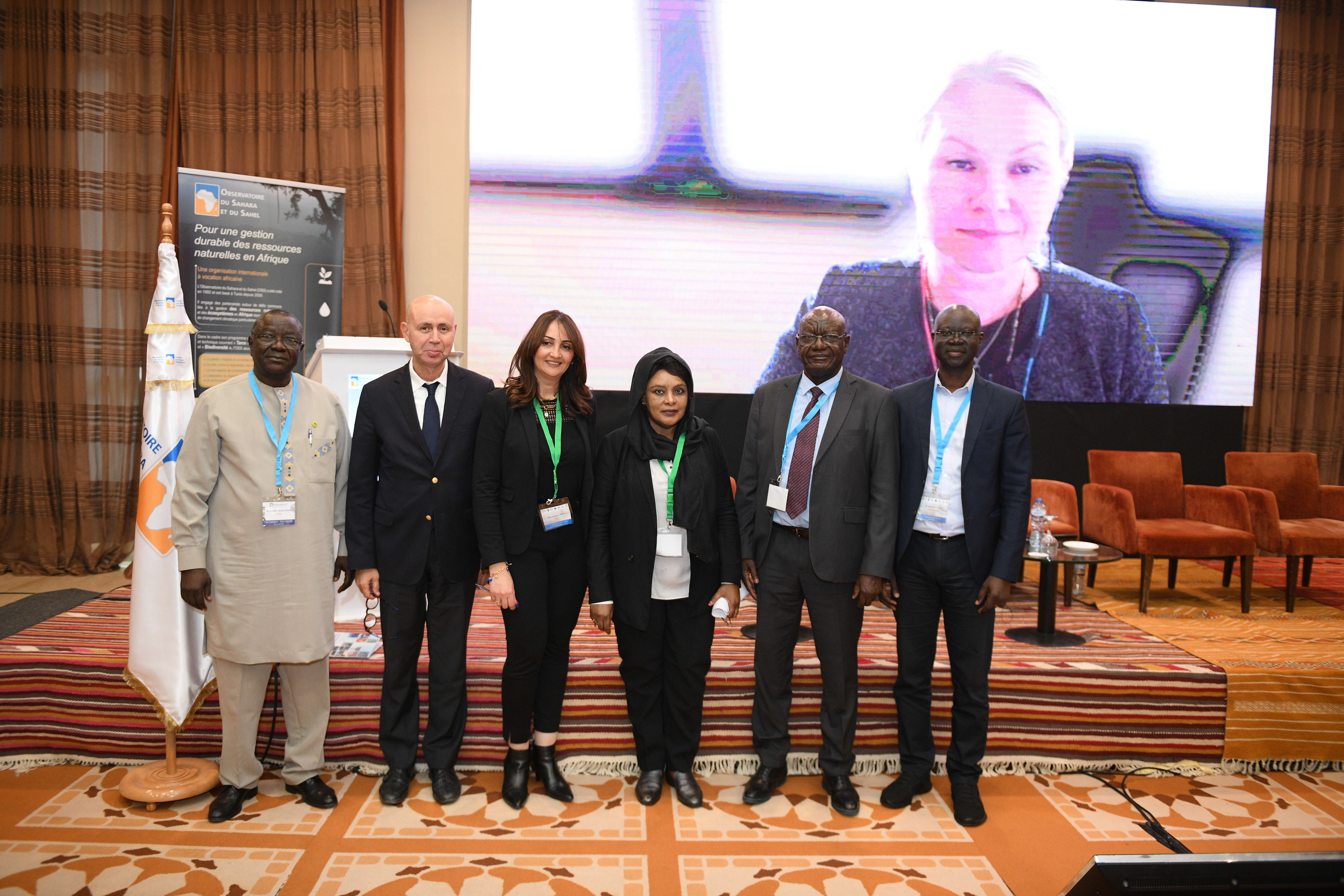
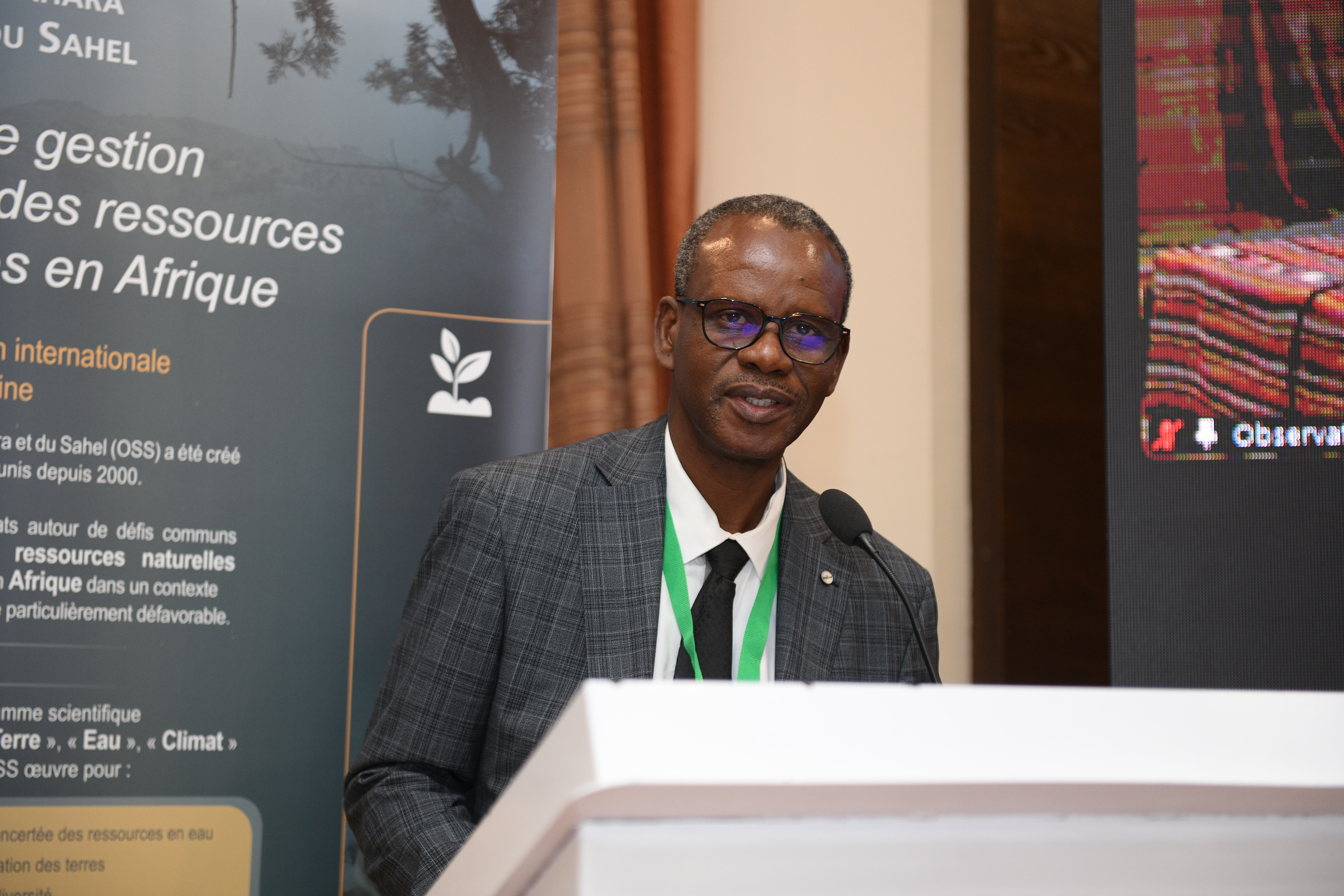
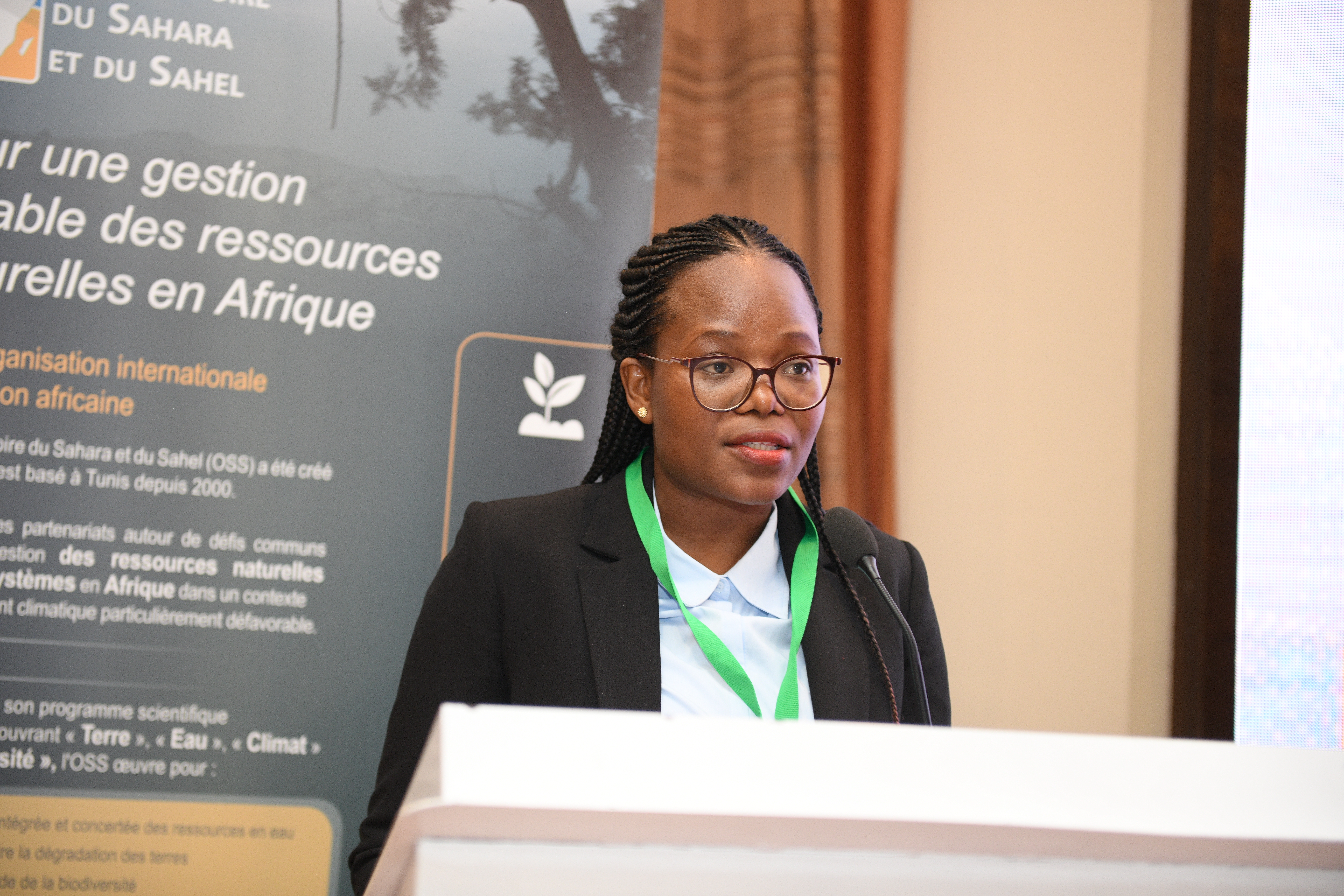
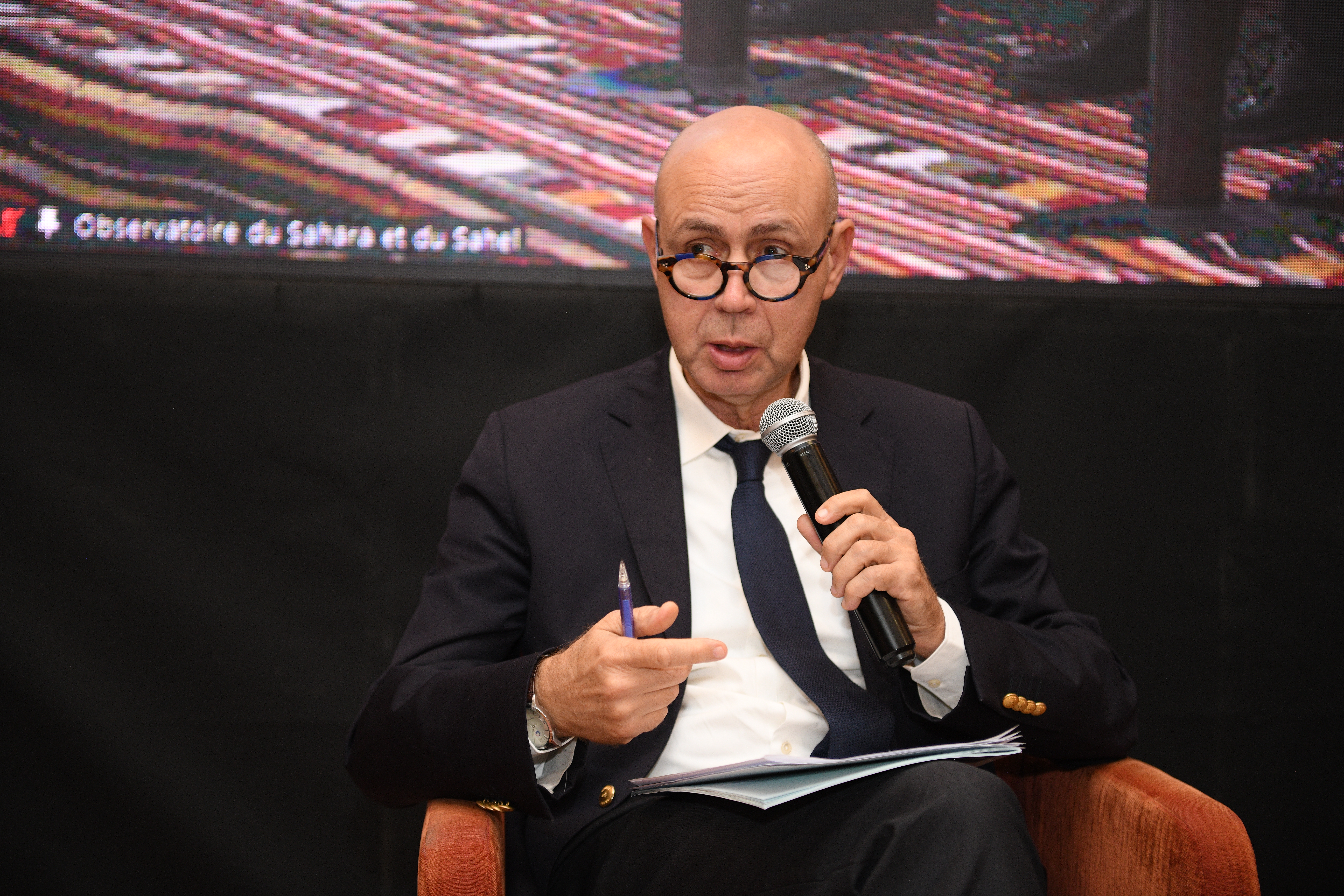
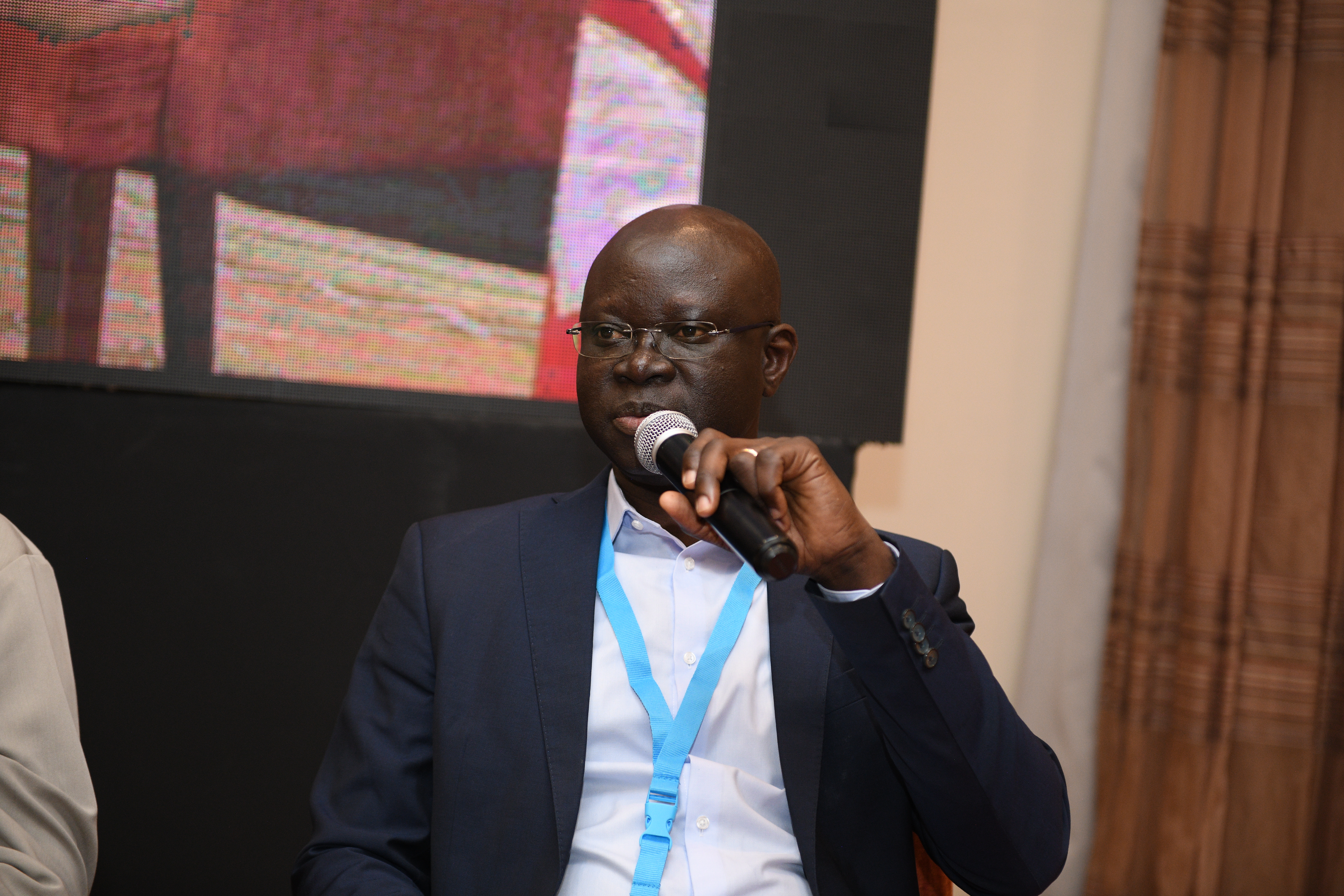
Tunis, April 24, 2025
The Sahara and Sahel Observatory (OSS) organized a high-level roundtable on Thursday, April 24, 2025, on the theme "Global Water and New Paradigms in Africa." This meeting brought together ministers, policymakers, researchers, representatives of international and regional organizations, and civil society in Tunis. This meeting initiated a strategic dialogue on emerging issues and levers for action for sustainable and coordinated water management in Africa.
The opening ceremony, moderated by Ms. Nadia Khammari, an expert in institutional communications, was introduced by Mr. Nabil Hamada, representing the Executive Secretary of the OSS, Mr. Nabil Ben Khatra, who later joined the meeting, taking the opportunity to personally present the OSS new book entitled: "Global Water in Africa: Transforming Challenges into Opportunities."
In his speech, Mr. Ben Khatra emphasized the urgent need to rethink water governance across the continent. He emphasized that water today represents a systemic issue, marked by strong interconnections with economic, climatic, and geopolitical dynamics. According to him, Africa's water sovereignty can only be ensured through an integrated approach based on cooperation, knowledge building, and solidarity between countries. He demonstrated that water is not limited to visible volumes: it circulates in the form of virtual water, between countries and markets, with impacts on food security, social justice, and climate resilience.
The introductory session was opened by Mr. Abou Amani, Director of the Division of Water Sciences at UNESCO, who laid the conceptual foundations of global water. He recalled that UNESCO's International Hydrological Programme (IHP) has supported African states in this effort by building their capacities, producing and disseminating knowledge, and developing tools for integrated water resources planning and management based on reliable data.
Ms. Alice Aureli, Vice-President of the International Water Resources Association, provided a scientific perspective on global and transboundary issues, highlighting the role of hydro-diplomacy in regional stability. In this context, UNESCO and the OSS are already collaborating on a pilot project, NB-ITTAS, demonstrating the continent's growing commitment to these issues.
The ministerial panel, expertly moderated by Mr. Abdelkader Dodo, Water Expert and Advisor to the OSS, was one of the highlights of the meeting. It provided a valuable platform for high-level personalities to present, with lucidity and commitment, the water realities and challenges specific to their national contexts. Their interventions highlighted the intensity of tensions linked to water scarcity, the deterioration of the quality of resources and the aggravating effects of climate change, while highlighting the initiatives undertaken to consolidate regional cooperation frameworks. Ms. Jeanne Adanbioko Akakpo, Director of Cabinet of the Minister of Living Environment of Benin, H.E. Mr. David Akoi, Vice-Minister in charge of Planning of Liberia, Mr. Seydou Sana, in charge of water resources in Burkina Faso, as well as H.E. Mr. Tarek Ben Salem, Secretary General of the Arab Maghreb Union took part in this panel.
Following these high-level discussions, a session devoted to national policies and institutional innovations was led by Ms. Fatou Mar, Director of the Land and Biodiversity Department at the OSS. Contributions from representatives of Djibouti, Mauritania, and Uganda illustrated the diversity of responses to common challenges in terms of structuring water institutions, integrating water footprints and virtual water into public policies, and developing innovative legal mechanisms.
A wide-ranging technical session was then devoted to promoting pilot initiatives for joint water resource management. Moderated by Mr. Mohamedou Baba Sy, Director of the Water Department at the OSS, it provided an opportunity to present two flagship projects: NB-ITTAS, dedicated to the governance of shared groundwater in West Africa, and DIKTAS, focusing on the sustainable management of the Dinaric karst aquifer. Ms. Apolline Bambara, Head of the Water Resources Planning Division at the OSS, presented the major advances made by the NB-ITTAS project, while also providing strategic perspectives for its second phase, which focused on operationalizing the cross-border consultation mechanism and consolidating achievements through scaling up pilot solutions. Mr. Boban Jolovic, UNESCO representative in Sarajevo and coordinator of the DIKTAS project, shared the project's results. Mr. Yassine Mellouli, representing GIZ, shared lessons learned from the implementation of the "Support for Water Sector Governance in Tunisia (GIZ/REGLEAU)" initiative.
The session on innovation and financing opportunities was moderated by Ms. Khaoula Jaoui, Director of the Climate Department at the OSS. It brought together a diverse panel of technical and financial partners to share their visions and tools for strengthening water governance through climate integration, structuring public-private partnerships, and resource mobilization. They included Ms. Osman-Elasha Balgis (AfDB), Ms. Kaisa Uusimaa (UNEP), Mr. Daher Elmi Houssein (IGAD), Mr. Abakar Mahamat Zougoulou (APGMV), Mr. Hubert Njdafa Ouaga (Sahel Institute/CILSS), Mr. Elyes Hamza (SPA/RAC), and Mr. Emmanuel Seck (ENDA Energy).
Concluding the proceedings, Mr. Issoufou Maigary, Niger's Director General of Water Resources, delivered a strategic summary, calling for water governance to be made a central pillar of African public policies. He reaffirmed that only management based on cooperation, shared knowledge, and regional solidarity will ensure peace, climate resilience, and sustainable development on the continent.